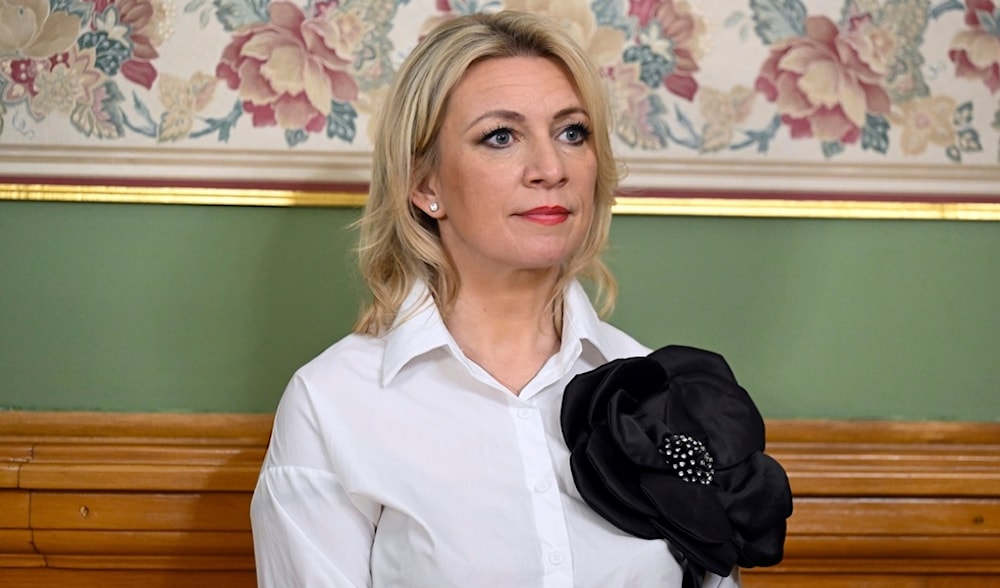Exclusive: Zakharova discusses relations with Arab World
Russian Foreign Ministry spokesperson Maria Zakharova assures Al Mayadeen that Moscow, unlike Western countries, does not impose its ideology on anyone and that its relations with others are based on equality and mutual respect for sovereignty.
-

Russian Foreign Ministry spokesperson Maria Zakharova attends a meeting of Russian Foreign Minister Sergey Lavrov with his Cuban counterpart Bruno Eduardo Rodríguez Parrilla in Moscow, Russia, June 12, 2024. (AP)
Russian Foreign Ministry spokesperson Maria Zakharova emphasized that Russia does not impose its ideologies on anyone, nor does it tell anyone whom they should or should not befriend.
Zakharova's remarks came in response to a question asked by Al Mayadeen about the possibility of talking about a full strategic Russian partnership with Arab countries at a time when the largest US military bases are stationed on their territory, and the impact of this factor on relations between Russia and the Arab world.
Zakharova emphasized that Russia's relations with the Arab world, as well as with countries in other regions, are traditionally based on the principles of equality, mutual respect, and consideration of each other's interests, unlike those of the West as a whole.
The Russian Foreign Ministry spokesperson noted that this principled position, expressed in simple words, is spelled out in appropriate terms in conceptual ideological documents.
Thanks to this approach, Russia has been able to establish genuinely friendly relations with the peoples of the Middle East and North Africa, she emphasized, noting that the history of these relations dates back to the distant past, with roots going back centuries, before these countries or regions had even heard of the United States.
"Building on this solid foundation, we continue to develop multifaceted cooperation with our Arab partners," Zakharova told Al Mayadeen, before adding that "the intensity of exchange at all levels and the indicators of trade cooperation with the countries of the region, which increase from year to year, speak for themselves."
US refusing to pull out from region
Zakharova argued that the presence of US bases prevents many countries, including those in the region, from fully developing their relations with whomever they wish, and when a sovereign state raises the issue of withdrawing US bases from its territory, the United States refuses to do so.
Zakharova said that the United States came to various countries in different ways, and in some cases it was a direct occupation of the entire country, seizing the most important areas for the purpose of exploiting natural resources.
"It is very difficult for countries in the region to ensure that the US armed forces, whether regular troops, mercenaries, or private military companies affiliated with the US, will leave their sovereign territories," Zakharova emphasized. "This is very difficult, so countries find themselves for one reason or another, voluntarily or involuntarily, in a state of occupation by US forces."
Zakharova: what does US shoes-on-ground lead to?
In answering this question, Zakharova gave Germany as an example, saying it is a case of a country with a developed system of legal relations, a democratic history, etc., which nonetheless has a large US military base, as if Germany feels safe as a result.
She pointed out that Germany was deprived of the most important element of energy security infrastructure, through Nord Stream 1 and 2, and the Americans secretly and regularly eavesdropped on its chancellor, while the US base is established on its territory, explaining, “This is the answer to the question of what they are doing there.”
Zakharova concluded by emphasizing that this is what US bases do, not only in Germany but in all regions of the world wherever American boots land.
Read more: Russia must update nuclear doctrine to bolster deterrence: Ex-advisor

 4 Min Read
4 Min Read









